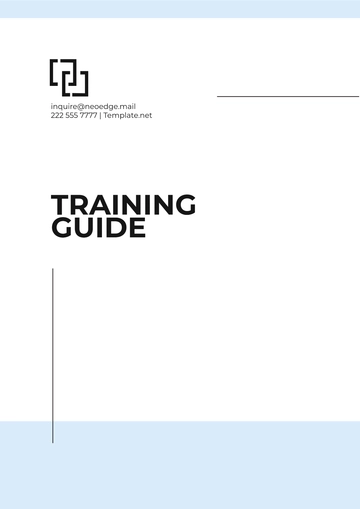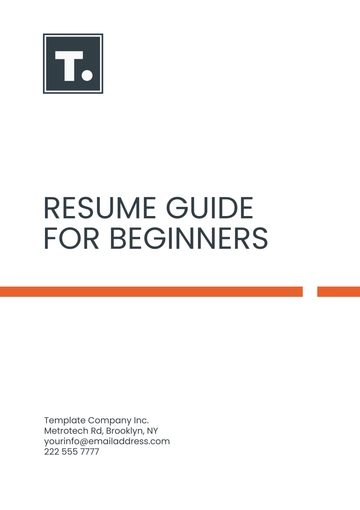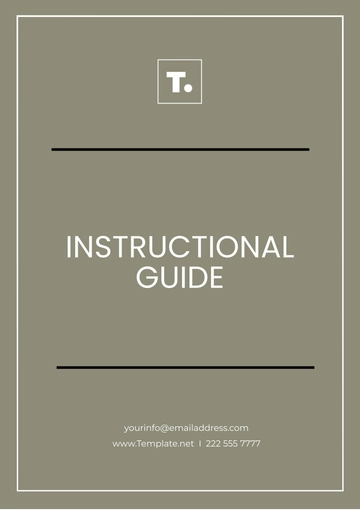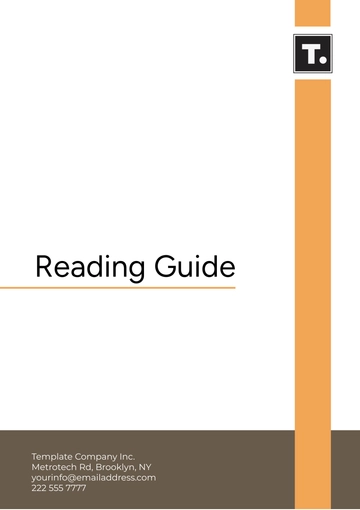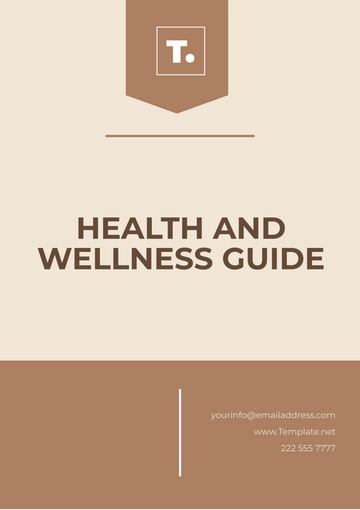Free Bible Study Guide

Prepared by | [YOUR NAME] |
Church Name | [YOUR CHURCH NAME] |
Church Address | [YOUR CHURCH ADDRESS] |
Church Email | [YOUR CHURCH EMAIL] |
Church Phone | [YOUR CHURCH NUMBER] |
I. Introduction
A. Overview
Welcome to the Bible Study Guide, crafted for participants at [YOUR CHURCH NAME]. This guide is designed to enhance your spiritual journey through in-depth exploration and reflection on the Scriptures.
B. Scope
This document provides a structured approach to studying specific books of the Bible, exploring thematic studies, or examining the lives of biblical characters. It aims to deepen understanding, facilitate application to personal life, and foster spiritual growth.
II. Study Overview
A. Study Focus
Book or Theme: [SPECIFY BOOK OR THEME], such as 'The Book of Romans' or 'The Fruits of the Spirit'.
Key Verses: [LIST KEY VERSES] that will be foundational for the study sessions.
B. Objectives
Understanding the Text: Enhance comprehension of the selected biblical passages.
Application: Explore how to apply biblical teachings to everyday life.
Spiritual Growth: Encourage personal and communal spiritual growth through guided reflection and interaction.
III. Weekly Study Sessions
A. Session Breakdown
Each session is structured to progressively delve into the Bible:
Week 1: Introduction to the Study/Book/Theme
Week 2-Week n: Detailed exploration of consecutive sections or themes
Final Week: Recap and Reflection on Key Learnings and applications
B. Session Format
Opening Prayer: [SUGGESTED OPENING PRAYERS] for each session.
Reading Assignment: Specific chapters or verses to be read each week.
Discussion Questions: Thought-provoking questions to facilitate deep discussions.
Closing Reflection: Guided reflections to end each session meaningfully.
IV. Study Materials
A. Recommended Translations
Suggest specific Bible translations that are preferred for their accuracy and readability, such as [NIV, ESV, NASB].
B. Supplementary Resources
Commentaries: Recommended [COMMENTARIES] for deeper insights.
Books: Additional [BOOK TITLES] that complement the Bible study topics.
Videos/Audio: Links to relevant [VIDEOS OR AUDIO MATERIALS] available online for supplementary viewing/listening.
V. Study Tips
Category | Study Tip | Details |
Individual Study | Daily Reading Plan | Create a daily reading schedule that covers the assigned scriptures for each week. This helps maintain a consistent engagement with the material. |
Journaling | Encourage journaling about personal reflections, questions, and insights from daily readings. This can deepen understanding and retention. | |
Review and Recap | Regularly review notes and key concepts discussed in previous sessions to reinforce memory and connections between topics. | |
Group Dynamics | Active Participation | Encourage every member to participate in discussions, ensuring a diverse range of perspectives are shared. |
Respectful Listening | Foster an environment where all viewpoints are listened to respectfully, which enhances collaborative learning. | |
Role Rotation | Rotate discussion leader roles among group members to engage different leadership styles and give everyone a chance to facilitate. | |
Facilitation Tips | Clear Objectives | Begin each study session by clearly stating the objectives and what participants should expect to learn or discuss. |
Use of Visual Aids | Utilize visual aids like charts, maps, or timelines to illustrate complex biblical narratives or concepts, making them easier to understand. | |
Breakout Sessions | Divide large groups into smaller teams for parts of the session to encourage more intimate and detailed discussions. | |
General Best Practices | Consistent Schedule | Hold Bible study sessions on a consistent day and time to help participants plan and make study a habit. |
Feedback Collection | Regularly collect feedback on the study sessions to adapt and improve the format, content, and delivery based on participant input. | |
Resource Sharing | Provide access to additional resources such as commentaries, articles, and online lectures that participants can explore outside of the study sessions. |
VI. Discussion Guidelines
Outline the norms for discussions to ensure they are constructive, respectful, and inclusive. Include tips on how to handle differing interpretations with grace and mutual respect.
VII. Evaluation and Feedback
Provide methods for participants to offer feedback on the guide and study sessions. Include tools or suggestions for assessing the spiritual impact of the study.
VIII. Additional Resources
A. Online Forums or Groups
Information on [ONLINE PLATFORMS] where participants can engage in discussions and share insights outside of regular meetings.
B. Events and Conferences
Details on upcoming [EVENTS OR CONFERENCES] that participants might find enriching for their Bible study experience.
IX. Conclusion
As we conclude this guide, we want to emphasize the significant impact structured study can have on both understanding and personal spiritual growth. The Bible, with its profound narratives and teachings, offers endless wisdom that can deeply influence our lives. By engaging with the scriptures through this structured study guide, participants can expect to develop a more nuanced understanding of biblical texts, foster stronger community bonds within their study groups, and integrate biblical principles more effectively into their daily lives.
- 100% Customizable, free editor
- Access 1 Million+ Templates, photo’s & graphics
- Download or share as a template
- Click and replace photos, graphics, text, backgrounds
- Resize, crop, AI write & more
- Access advanced editor
Introducing the ultimate Bible Study Guide Template from Template.net. Dive into scripture with ease using this fully editable and customizable resource. Crafted to suit your needs, it's effortlessly editable in our Ai Editor Tool, ensuring seamless adaptation to your unique study style. Unlock profound insights effortlessly.






